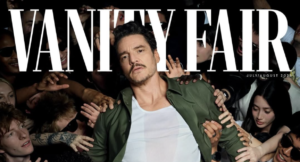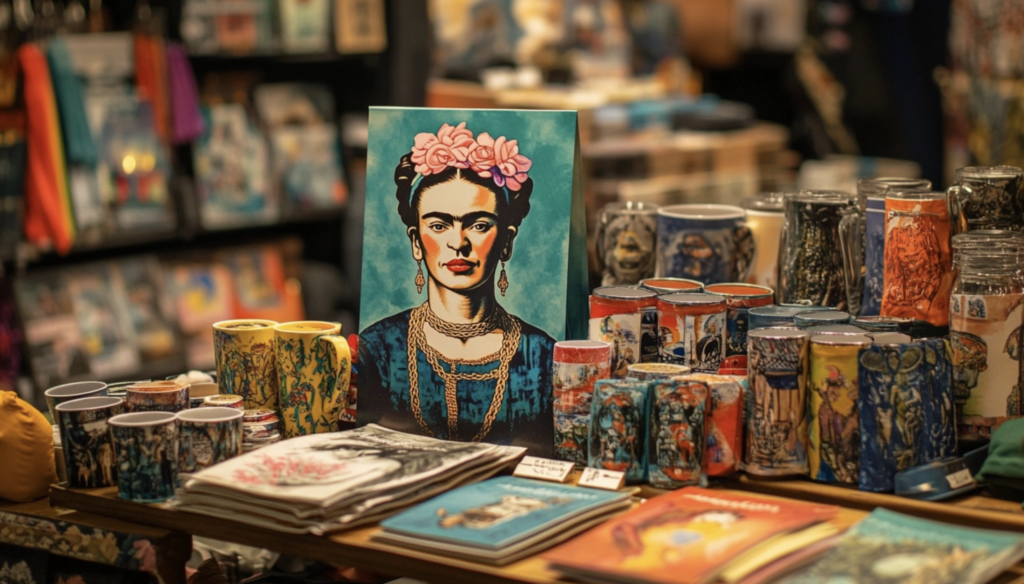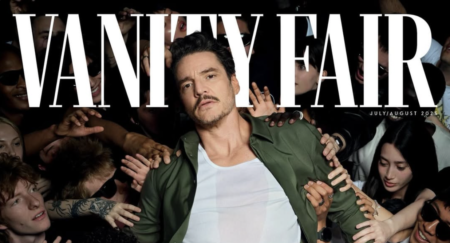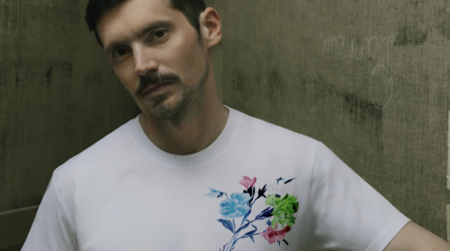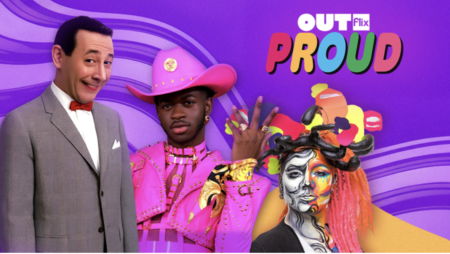When did Frida Kahlo become the Taylor Swift of the art world? How was the hard-core communist turned into an industry of mugs and t-shirts? The 2024 Amazon documentary Frida reignited conversations about how mainstream platforms and cultural industries often give the radical communist aspects of Kahlo’s life and politics an, erm, radical make-over.
The documentary, directed by Carla Gutierrez, is part of a trend seen on streaming platforms such as Jeff Bezos’s Amazon Prime, where the economic imperative drives the production of content that is easily consumable and, as an extension, pretty superficial. The Current Affairs outlet highlights how this ‘slop’, as online commentators have named it, caters to casual viewing habits – where phones are scrolled and fingernails painted while watching – rather than offering rigorous explorations of complex subjects. Because how are you going to be simultaneously buying tennis socks with bobbles at the back on Amazon if you have to concentrate on a documentary, right?
The critique uses the example of how Netflix apparently instructs its writers to have characters state explicitly what they are doing, ensuring that background viewers can follow the action while shopping for moisturiser. While the Frida documentray is considered less egregious than some of Amazon’s other productions – Without Remorse and The Tomorrow War come to mind – it still stops short of taxing viewers on the subject of the political convictions that defined Kahlo.
Underlying this creative dilution is Amazon owner Jeff Bezos’s documented stance against left-wing politics within his media enterprises. Bezos’s recent directives to the Washington Post, which is part of his empire, dictate that opinion writers endorse ‘free markets’ and ‘personal liberties’ (unless those personal liberties extend to left-wing politics, presumably), illustrating forms of censorship that shape which narratives are acceptable and which are very definitely not. Though there is no explicit evidence that Bezos or his executives interfered with Frida’s content, the economic and cultural ecosystem they govern discourages anything too radical, resulting in content that often erases the communist elements of historical figures like Kahlo.
This sanitisation is not constrained to film. It extends deeply into the publishing world, especially children’s literature. Books aimed at young readers, such as Counting With Frida and My Little Golden Book About Frida Kahlo, offer charming, apolitical representations of Kahlo’s life. Even the more scholarly Who Was Frida Kahlo?, aimed at middle school readers, conspicuously removes anything to do with Kahlo’s communist affiliations despite freely discussing other leftist figures such as Fidel Castro and Che Guevara within the same series.
Even in adult literature, Khalo has been de-redded. Arianna Davis’s 2020 What Would Frida Do? A Guide to Living Boldly allocates minimal space to Kahlo’s Marxist-Leninist politics, burying the discussion in a chapter on identity and focusing instead on themes more palatable to mainstream audiences, such as love and personal empowerment. Davis’s interpretation transforms Kahlo’s revolutionary outspokenness into an individualistic message of ‘being loud and proud’ in order to make Kahlo’s radicalism less threatening and more commercially viable.
The sanitisation of leftist legacies is a widespread phenomenon, not exclusive to Kahlo. Figures such as gay writer James Baldwin and civil rights leader Martin Luther King Jr. are often remembered more for their inspirational qualities than their radical political stances. As the historian Vladimir Lenin observed, the posthumous treatment of revolutionaries frequently involves converting them into ‘harmless icons’, which defangs their revolutionary messages.
Frida Kahlo’s communist beliefs were not marginal to her identity but integral and inseparable. From a young age, Kahlo was radicalised by her experiences during the Mexican Revolution and her opposition to her mother’s conservative Catholicism. At Mexico City’s National Preparatory School, she joined the Cachuchas, a radical student group that championed socialist ideals and revolutionary literature, opposing conservative educators. Throughout her life, she was intellectually engaged with the works of the greatest hits of left-wing politics: Marx, Engels, Lenin, Stalin, and Mao Tse-tung, proudly describing herself as a follower of ‘the pillars of the new Communist world’.
Moreover, Kahlo’s politics were deeply entwined with her lived experience of chronic pain and disability, made worse by substandard medical care following a serious bus accident. Her 1954 painting Marxism Will Give Health to the Sick explicitly shows her faith in socialism as a remedy not only for social ills but for personal suffering. The painting depicts Karl Marx’s head looming large, strangling a vulture symbolising American capitalism, while Kahlo casts aside her crutches, embodying hope for a healthy, equitable future. Can’t really see Jeff Bezos going for that.
Source: Noah Wire Services
- https://artsandculture.google.com/story/how-frida-kahlo-fused-her-mexicanness-with-socialism/fgUhyOyRt3urIA – This article supports Frida Kahlo’s integration of Mexicanness with socialism, highlighting her relationship with Diego Rivera and her involvement with socialist principles that influenced her art and worldview.
- https://www.artsy.net/article/artsy-editorial-frida-kahlos-love-affair-communist-revolutionary-impacted-art – This piece discusses Frida Kahlo’s affair with Leon Trotsky and her shifting between different communist factions, reflecting her deep engagement with Marxist ideas.
- https://daily.jstor.org/frida-kahlos-forgotten-politics/ – This article highlights Frida Kahlo’s involvement with communism throughout her life, emphasizing the anti-imperialist aspects of her politics.
- https://www.currentaffairs.org/news/the-erasure-of-frida-kahlos-communism – This critique explores how Frida Kahlo’s communist affiliations are often omitted or downplayed in mainstream representations, mirroring a broader trend of sanitizing radical figures.
Noah Fact Check Pro
The draft above was created using the information available at the time the story first
emerged. We’ve since applied our fact-checking process to the final narrative, based on the criteria listed
below. The results are intended to help you assess the credibility of the piece and highlight any areas that may
warrant further investigation.
Freshness check
Score:
9
Notes:
The narrative refers to the 2024 documentary ‘Frida’ on Amazon Prime, a very recent release, indicating up-to-date content. It discusses ongoing cultural phenomena and recent examples up to 2024, such as conservative responses in 2018-2019 and a 2020 book. No outdated or recycled news was detected. The lack of a press release format is clear; instead, it’s an analytical commentary, which supports freshness.
Quotes check
Score:
8
Notes:
Direct quotes such as Lenin’s observation on revolutionaries becoming ‘harmless icons’ and Kahlo describing herself as a follower of ‘the pillars of the new Communist world’ appear in the narrative. The Lenin quote is well-known historically, but sourcing an exact original date is difficult; nonetheless, it aligns with standard Leninist critique. Kahlo’s self-description and interpretation are consistent with scholarly sources about her politics. The narrative likely draws on established historical references rather than newly surfaced quotes, so this moderately supports reliability.
Source reliability
Score:
6
Notes:
The narrative’s origin is unclear from the URL snippet. It does not come from a widely recognised major media outlet like BBC, Reuters, or Financial Times, which typically assures high reliability. The analysis references credible entities (Amazon Prime, Washington Post, Current Affairs magazine) and identifiable publications and events, suggesting some reliability. However, without clear provenance, there is moderate uncertainty about editorial standards.
Plausability check
Score:
9
Notes:
The claims about media sanitising Frida Kahlo’s political identity fit broader known patterns of cultural commodification and political framing. The contextual details about Bezos’s influence on media content, the political erasure in children’s books and adult literature, and conservative criticism are plausible and consistent with known socio-political dynamics. While direct proof of some editorial decisions is absent, the narrative’s points are consistent with documented tendencies in media and political economy.
Overall assessment
Verdict (FAIL, OPEN, PASS): PASS
Confidence (LOW, MEDIUM, HIGH): HIGH
Summary:
The narrative is timely, discussing a 2024 documentary and recent events, with no indication of recycled or outdated content. Quotes are consistent with known historical references, though not novel. The reliability is moderate due to unclear origin but supported by credible internal references. The claims are plausible and fit established socio-political patterns. Overall, the narrative passes verification with high confidence.




